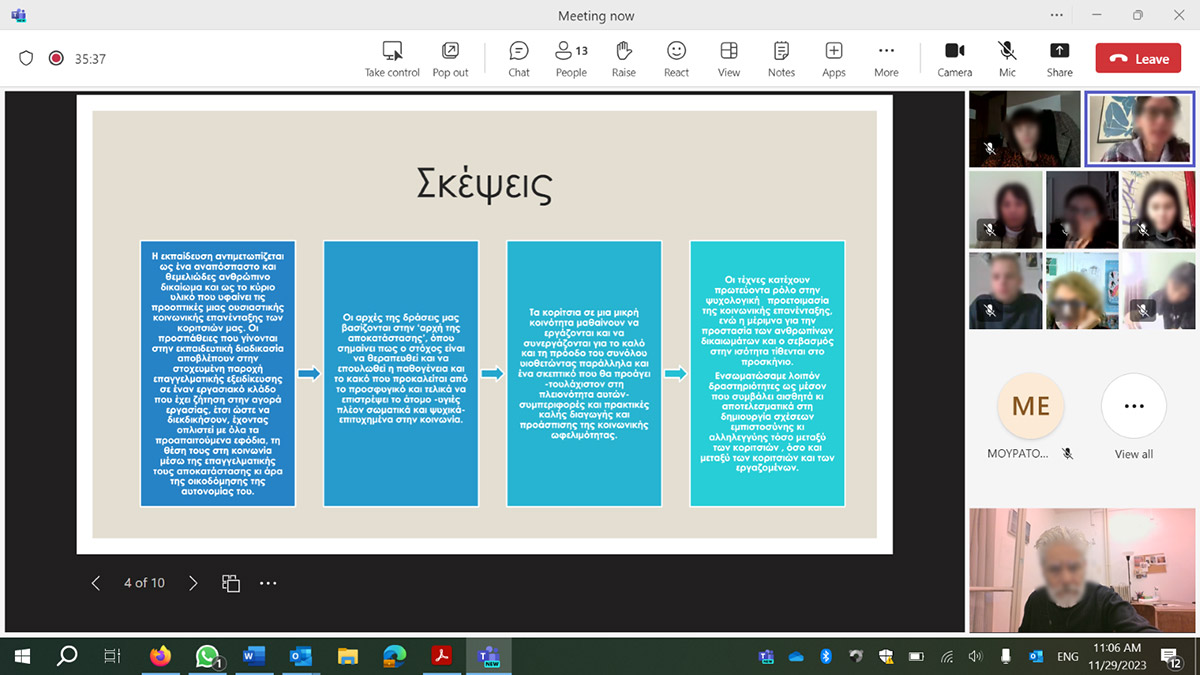
The fourth and last Local National Policy Platform (LNPP4), was held online on Wednesday 29th November, 2023, by HumanRights360, as an active member of the PISTE project. The meeting brought together members of the Civil Society Organisations, integration and policy stakeholders, key actors from public agencies, various local and sub-local stakeholders, including the Head of the Unit for Integration and Support of UAMs of the Ministry of Migration and Asylum, the Mayor of Voio Municipality, the director of the local intercultural public school, the director and the employees of the Pentalofos shelter. The meeting aimed to discuss the greek case and policy experiment that took place at the Pentalofos Shelter for female UAMs, the final outcomes and impressions, the strengths and weaknesses of the educational activities applied. The discussion was also focused on analyzing the methodology of the experiment, the participation of the beneficiaries, the effectiveness of the activities and the project’s sustainability.
Considering the local-geographical needs and limitations (remoteness, lack of interpreters, limited interest of professionals to work in Pentalofos), obstacles and unexplored opportunities (special needs, language barriers) the UAMs had to represent both the process target and the targeted beneficiaries of the experiment, for a tailor-made experiment. The provision of multicultural activities about self-identity and socialization, social skills, and career guidance through the PISTE project highlighted the fact that that the UAMs were not mere participants in the activities, but active agents in their co-creation as their significant needs, special characteristics and interests were taken into consideration, during the experiment design and implementation.
The aspiration of the policy experiment, through the educational process of the UAMs, was to enable them claim their place in society through rehabilitation, personal empowerment and awareness. Therefore, the activities contributed to the development of their characters and facilitated the creation of relationships of trust and solidarity, offering concurrently the steppingstones for a smooth transition to adulthood. While building a climate of trust and security, the UAMs were given the opportunity to strengthen their communication skills, recognize and express their feelings, reinforce their self-esteem and cultivate a sense of belonging.
The final outcomes of the experiment were, among others, the creation of bridges of communication and the inclusion of UAMs at the local community, the employment of local intermediaries that could promote involvement with the local community and enhance the incorporation of immigrant and refugee youth, the cooperation with local organizations that could strengthen the networking and offer opportunities for the sustainability of the activities. The experiment was truly appreciated by the participants and the local community, therefore, sustainability after the PISTE project is a significant concern for the stakeholders involved in the project, who aim to leverage any disposable opportunity.



